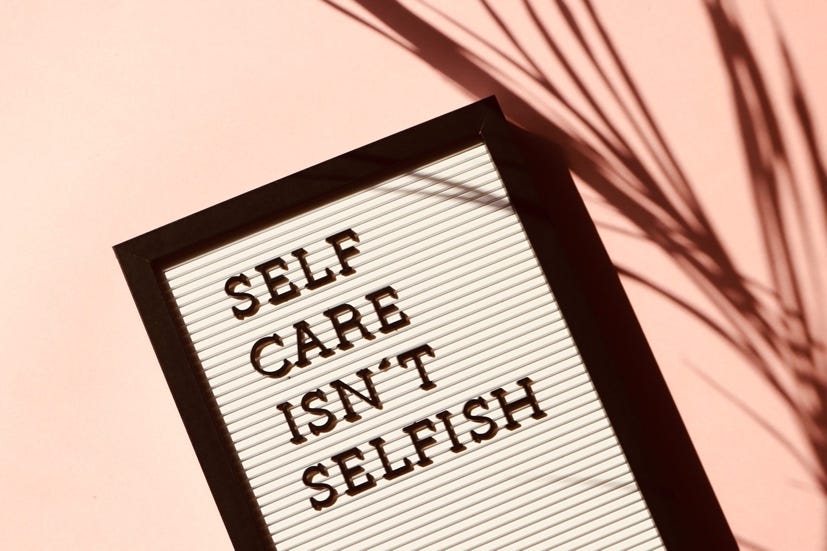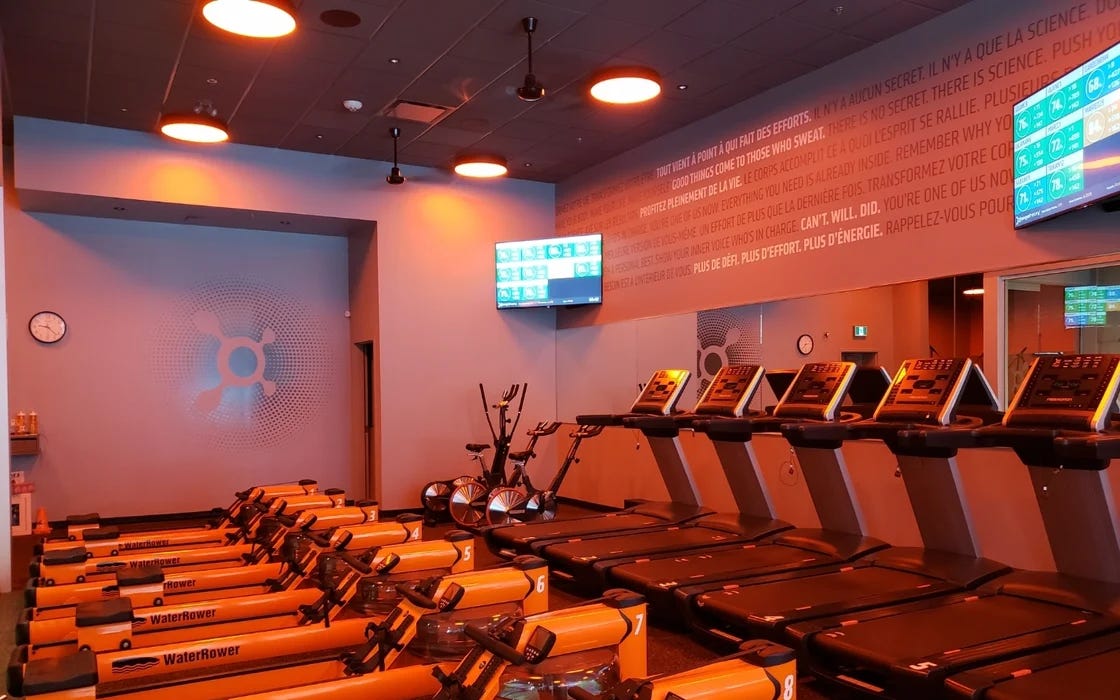On working very hard, sometimes.
How many women became subconsciously sandwiched inside the problematic paradigms of busyness culture and rest culture.
Hustle Culture stirs up Self-Care Culture
Surprising no one, America (land of the free and home of rampant dualism) has created two new extremes to loudly celebrate over the past few years.
On the one end, we’ve got hustle culture. Up at 5am, head down, get after it, never settle, no complaints.
The premise? More is more.
On the other end, self-care culture. Soak your overworked feet while perusing your Zodiac, apply expensive face cream, and then take a long nap.
The premise? Capitalism is a lie, and you are not a machine.
Often these campaigns (not organized campaigns, but campaigns nonetheless) target women. Our social media feeds are drenched in them, and goods/services are miraculously geared toward these aspirational ends: three dozen varieties of thick, spiral-bound planners in one Target aisle, facial masks and plush robes in the next.
Flip through some Instagram reels and you’re likely to get whiplash: Rest is weakness! No, rest is resistance!
I don’t have proof, but it’s not hard to see one is a reaction to the other. Hustle culture rose first in the late 2010s, and at the time, it may have been a meaningful corrective to unimportant work and the internalized beliefs many women have about the correct ways to show up in professional spaces. For eons, women haven’t felt okay staying late at the office or devoting considerable time their away-from-home jobs. Now, post-Lean In, they are staking their claim. Women working hard can be a radical act of space-making in a world that still prefers men in charge.
(Or, the same basic messaging can show up as corporate-driven, corporate-benefitting pablum.)
Likewise, self-care culture is necessary because historically women have been expected to take care of everything, invisibly. Now, post-#metoo and hustle-culture and toxic-masculinity, women are staking their claim. Sometimes bubble baths are a radical act of liberation.
It takes a while for people to get uncomfortable and start objecting to these kinds of movements, and we have begun to see that recently, with the rise of wellness culture as a response to toxic productivity messaging. You want me to hustle? Too bad—I’m taking a nap instead.
Give me a little credit here?
I know—most of us aren’t waking up at 5am to spend an hour on the treadmill or taking yoga retreats in Bali. We are absorbing all this cultural messaging more passively, and we aren’t stupid.
This doesn’t mean we aren’t affected. Practically, what happens to us normies when we are assaulted with these opposing ways of being in the world? We dart from one to the other, trying to manage both. Get to inbox zero, then get the manicure. Check off the to-dos, then squeeze in cocktails with the girls. Do all the grocery shopping, then spend an hour reading up on your enneagram and getting in touch with your own needs.
We also tend to cherry pick the philosophy that best suits us in the moment. When I want to buy a new shirt, I call to mind self-care culture. (Treat yourself, honey!) When I want to release guilt about attending a work conference, I call to mind hustle culture. (Don’t let anyone keep you from making your dreams a reality!)
This flitting back and forth between extremes leaves us frenetic and burned out. (Enter the 2022 phenomenon of burnout culture and quiet quitting.)
Inevitably, if you criticize either of these extremes, someone will rise to defend it. “It’s okay for women to get ahead!” “I am worth caring for.”
The problem (this is almost always the problem): neither extreme is inherently bad or wrong. Both camps have a point. And often the most radical expressions of either culture are the most necessary, such as Tricia Hersey’s Nap Ministry, which is a thoughtful response to the historic overwork of Black people and is influenced by Black liberation theology.
Both camps have a point because the problem isn’t either philosophy, per se. The problem is the dualism itself, or the making absolute what ought to be kept fluid. Of course at times it makes sense to hustle, and at times it makes sense to rest. Of course deciding which time is which requires wisdom and discernment. People who become completely entrenched in either cultural extreme become immovable, inflexible, and often incredibly selfish.
As antidotes to both extremes, I highly recommend a book—Four Thousand Weeks by Oliver Burkeman—and a podcast—Everything Happens with Kate Bowler.
Here’s a snippet from Four Thousand Weeks.
The problem with trying to make time for everything that feels important—or just for enough of what feels important—is that you definitely never will. The reason isn’t that you haven’t yet discovered the right time management tricks or supplied sufficient effort, or that you need to start getting up earlier, or that you’re generally useless. It’s that the underlying assumption is unwarranted: there’s no reason to believe you’ll ever feel ‘on top of things,’ or make time for everything that matters, simply by getting more done.
And here’s a line from Kate’s book Good Enough. (It doesn’t have to be Christian-specific if you’re not. It works for all humans.)
What would it mean for Christians to give up that little piece of the American Dream that says, "You are limitless"? Everything is not possible. The mighty kingdom of God is not yet here. What if 'rich' did not have to mean 'wealthy,’ and 'whole' did not have to mean 'healed'? What if being the people of "the gospel" meant that we are simply people with good news? God is here. We are loved. It is enough.
You are not limitless, but time is.
Vinyl words are posted on the walls of the gym where I work out. The phrases include
When you don’t think you can do one more, do three more.
Don't just wish for it, work for it.1
Turn yesterday’s I can’t into today’s I can.
That’s a lot of hustle-culture motivation to absorb every time I hop on the treadmill.
Maybe as I leave the gym, I do a quick Instagram scroll. Here is what I see in the first 60 seconds:
a woman pretending to debate whether she should indulge in iced coffee and then, predictably, getting it anyway (to the tune of “The Girl Can’t Help It”)2
“Life as a mom summed up: I just want to scream, ‘appreciate me dammit!’”
another video of a woman’s full coffee mug (you can’t make this up!) scanning over toward her in-process embroidery, filtered with a golden hue and set to a meditative melody
That’s a steaming heap of self-care culture right there.

Listen, I love treadmills and I love embroidery. I love working hard and I love trash television.
It’s just that when I choose one, I can’t have the other. And I am always making choices.
Because, contrary to what we tell ourselves in this country and in this century, everything is not possible.
And that’s going to have to be okay.
The comma splice is theirs, not mine. Call me OTF.
She can.








Lindsey- This piece really makes me thought deeply with moments of pure comedy. The way you wrote and deconstruct hustle culture as a reactionist non-philosophy is really interesting. Wonderfully composed!